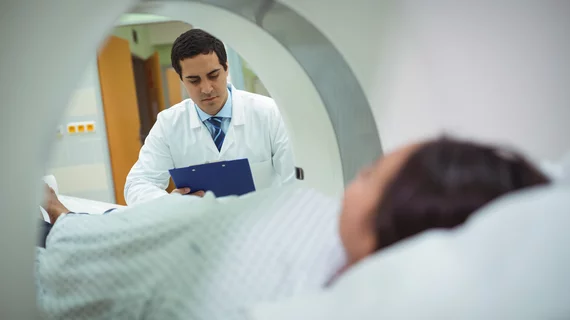University of Arizona team working toward 15-minute MRI
A team at the University of Arizona (UA) in Tucson is working to create a 15-minute MRI to accommodate patients with medical conditions ill-suited for traditional imaging times, according to a recent UA news release.
In addition to faster times, the new technique, called enhanced multiplexed sensitivity encoded MRI (MUSE) will also produce higher-resolution images with more relevant data. The novel technology will borrow from the MUSE and diffusion tensor imaging method created previously by principal investigator Nan-kuei Chen, an associate professor at UA.
"We want to address the boundaries of existing MRI protocol," Chen said in the release. "With this research, MRI scans will be faster and higher quality and will produce richer information, so we can be better informed on the stage of disease or will even be able to see if there's any brain signal abnormality before the disease is diagnosed. With earlier detection, we might be able to delay the disease's progress."
In the initial phase of the five-year project, the team will test their new methods on healthy participants and subsequently verify its accuracy using transcranial magnetic stimulation. They will compare data taken from patients at high-risk of Parkinson’s with those in early and late stages of the disease.
The work is being funded by a $2.1 million grant from the National Institute of Neurological Disorders and Stroke and led by UA’s College of Engineering.

